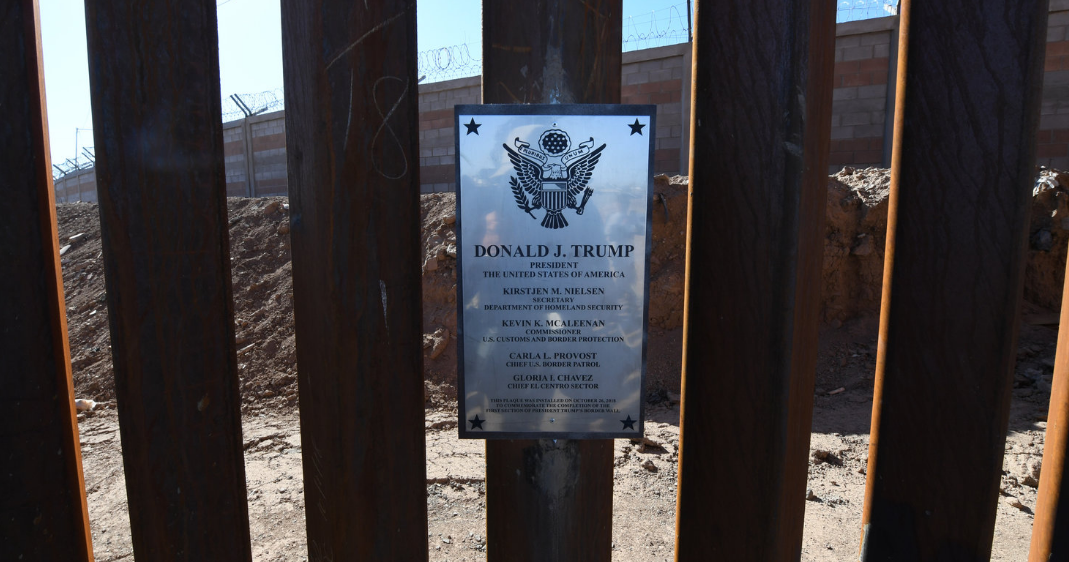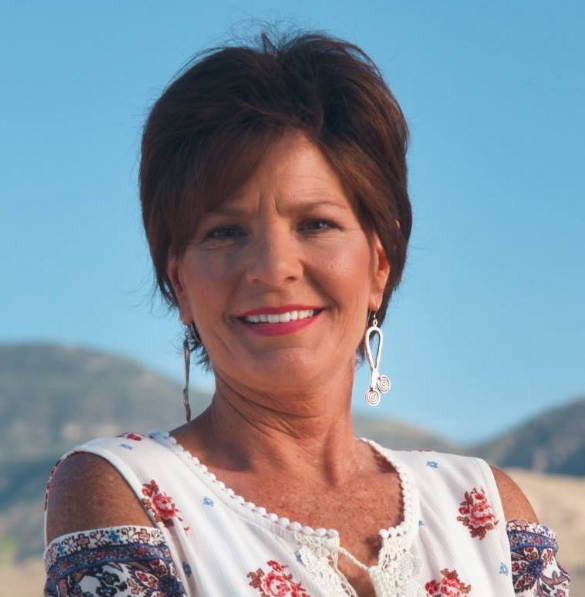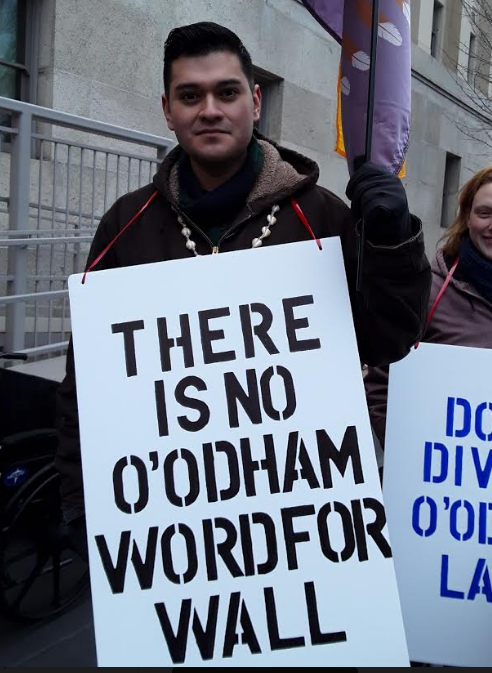
- Details
- By Darren Thompson
WASHINGTON — In her first month in Congress, New Mexico lawmaker Yvette Herrell (R-N.M.), a member of the Cherokee Nation, is decrying President Biden’s efforts to halt construction of President Trump’s border wall.
“There’s no doubt that the border wall has made New Mexico — and the entire country — more safe and secure,” Congresswoman Yvette Herrell, an avid Trump supporter, said in a newsletter.

“These dangerous moves by the new administration will lead to more illegal immigration, more drug trafficking, and more crime in our communities,” continued Herrell.
Herrell’s comments came after Biden acting decisively on his first day in office to stop the wall that Trump promised Mexico would fund, but never did.
On Wednesday after noon, hours after being taking the oath of office, Biden issued the Proclamation on the Termination Of Emergency With Respect To The Southern Border Of The United States And Redirection Of Funds Diverted To Border Wall Construction. In summary it states to “pause immediately the obligation of funds related to construction of the southern border wall, to the extent permitted by law.”
Trump used a national emergency declaration to divert nearly $10 billion from the Defense Department, which would have been one of the costliest federal infrastructure projects in U.S. history.

According to the US Department of Homeland Security, there are 1,954 miles on the United States—Mexico border. So far, 450 miles of border wall have been constructed with an additional 350 miles of construction already funded.
Of those planned for constrution, 62 miles saddle the Tohono O’odham Nation in Arizona. According to the Tohono O’odham’s website, the Tohono O’odham Nation is a federally recognized tribe of more than 34,000 tribal members, including more then 2,000 residing in Mexico.
When Tohono O’odham members are questioned on their position of the border wall, their first response is, “there is no O’odham word for wall.” Many oppose construction and cite the desecration of sacred sites and the violation of treaties.
The National Congress of American Indians—the nation’s oldest, largest, and most representative American Indian organization—passed a resolution in 2017 stating that, “it opposes the construction of a physical wall on the southern border of the United States on tribal lands without the consent of affected tribes.”
Herrell’s stance to oppose the halting of the border wall construction also undermines the Cherokee Nation of Mexico, who claim Cherokee descent after many migrated to Mexico during the 19th century. According to the Cherokee Nation of Mexico’s website, the Cherokee Nation of Mexico is officially recognized by the Republic of Mexico. Regardless of recognition by a colonial sovereignty, Herrell’s stance on the border wall calls into question her ties to her Indigenous heritage.
Those who have opposed the border wall construction found relief when President Biden stated, “It shall be the policy of my Administration that no more American taxpayer dollars be diverted to construct a border wall.”
In her first week in Congress, Herrell voted to formally object to the certification of the Electoral College tally.
More Stories Like This
Native News Weekly (August 25, 2024): D.C. BriefsUS Presidents in Their Own Words Concerning American Indians
Two Murdered on Colville Indian Reservation
NDAA passes House; Lumbee Fairness Act Advances
NFL, Vikings to Host Native All-American Game, Youth Flag Clinic
Help us defend tribal sovereignty.
At Native News Online, our mission is rooted in telling the stories that strengthen sovereignty and uplift Indigenous voices — not just at year’s end, but every single day.
Because of your generosity last year, we were able to keep our reporters on the ground in tribal communities, at national gatherings and in the halls of Congress — covering the issues that matter most to Indian Country: sovereignty, culture, education, health and economic opportunity.
That support sustained us through a tough year in 2025. Now, as we look to the year ahead, we need your help right now to ensure warrior journalism remains strong — reporting that defends tribal sovereignty, amplifies Native truth, and holds power accountable.
 The stakes couldn't be higher. Your support keeps Native voices heard, Native stories told and Native sovereignty defended.
The stakes couldn't be higher. Your support keeps Native voices heard, Native stories told and Native sovereignty defended.
Stand with Warrior Journalism today.
Levi Rickert (Potawatomi), Editor & Publisher
